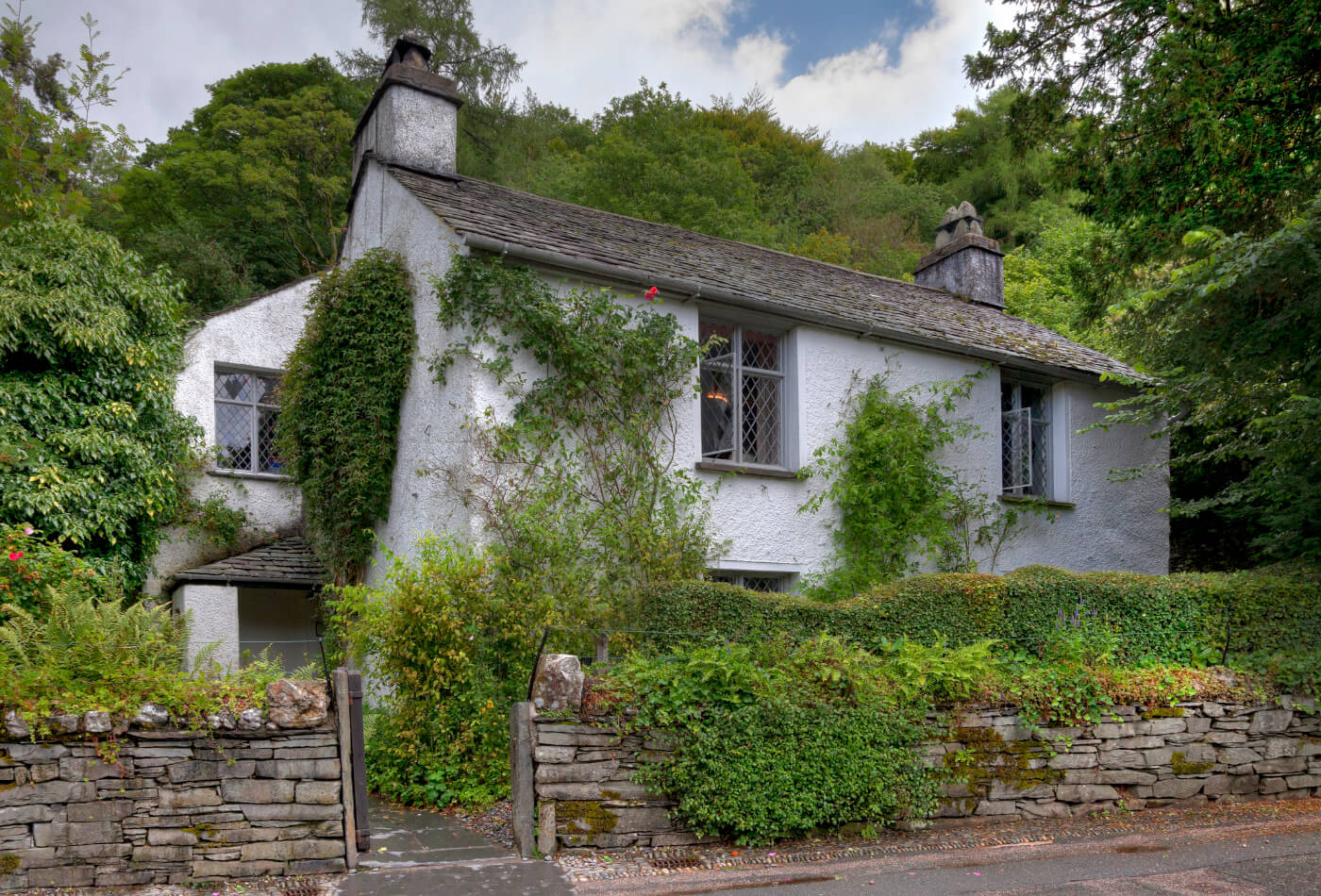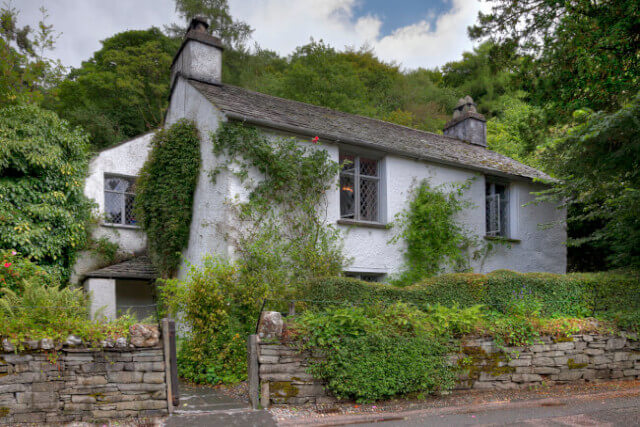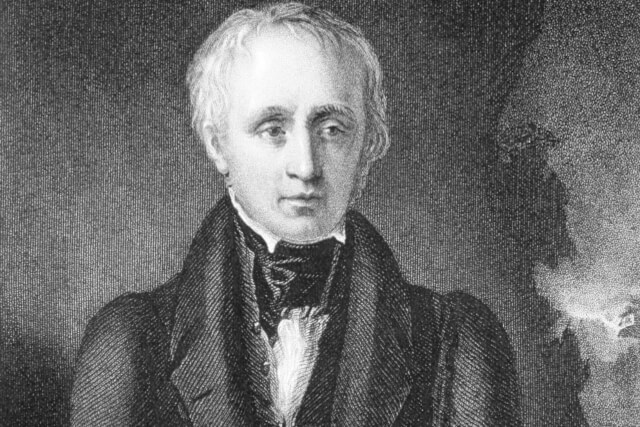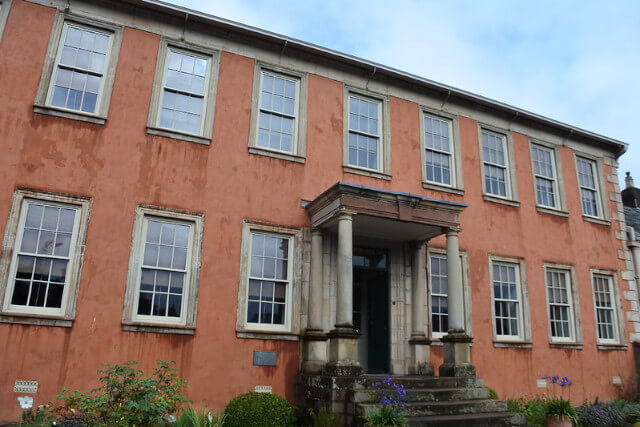The 6 Facts about St George’s Day You Might Not Know
St. George is one of the most revered saints in history and is, of course, the patron saint of...

2020 marks the year of William Wordsworth’s 250th birthday. To celebrate this, we thought we’d commemorate the special occasion with a list of interesting facts about the famous poet that you probably never knew.
Wordsworth’s poetry is still studied in many schools across the country and with his 250th birthday fast approaching, the National Lottery Heritage Fund has donated money to ‘Re-imagining Wordsworth’, igniting a passion for his work with the newest generation.
Read on to discover 9 things you never knew about William Wordsworth below…
Never heard of Wordsworth? Outrageous! In all seriousness, if you don’t know too much about him, allow us to educate you.
William Wordsworth is renowned for being an English Romantic poet who helped to launch the Romantic movement.
One of the most iconic literary characters in history, Wordsworth’s poems are renowned for their lyrical rhythm, his effortless use of language and the ability to compare nature to everyday life, evoking a spiritual and emotional connection with his readers.

Born and bred in the Lake District, Wordsworth spent most of his life living here and was heavily inspired by his surroundings which made a substantial appearance in his poetry.
Spending most of his childhood in Cockermouth, he later moved in with his sister Dorothy at a cottage in Grasmere, before moving to a home in Ambleside in the final few years of his life.
After the death of their mother in 1778, William and Dorothy were torn apart by their father, who sent them to live with different relatives and Wordsworth ended up in Penrith. They didn’t see each other for the next nine years, despite having been so close as children.
After being reunited, they made up for lost time by spending many of the next few decades living and travelling together, even taking trips to France and Germany.
Why not follow in the footsteps of Dorothy and Wordsworth by experiencing the best walks in the Lake District, or choose something a little more current and experience picturesque pub walks in the Lake District?

Have you ever found yourself wondering where did William Wordsworth live? We’re here to tell you there is more than one historic home of the famous poet’s located in the Lake District.
Born at Wordsworth House, Wordsworth lived in France and Germany for a time during the French Revolution, eventually finding himself homesick for the glorious rugged countryside of the Lake District. Returning home in December 1799, Wordsworth and his sister moved into the quintessential Dove Cottage where they lived until 1808, over 40 years before his death.
Considered to be one of the most memorable homes he had, there are in fact others that are open to the public for viewing.
If you’ve already heard of Dove Cottage, then you might not have heard of Rydal Mount where Wordsworth lived from 1813 until his death, just over two miles from the town of Ambleside.
If you’ve ever found yourself wondering where is William Wordsworth buried? You can find the joint headstone he shares with his wife at St Oswald’s Church in Grasmere, resting beside his beloved sister Dorothy.

Coined towards the end of the 18th century, the Romantic era is widely seen as having been started by poets William Wordsworth and Samuel Taylor Coleridge, who co-wrote the poetry collection Lyrical Ballads which is said to have changed the perception of how poetry should be written.
With Romanticism came a new age and approach to poetry writing which brought us some of the greats we’ve come to know and love. Wordsworth. Coleridge. Keats. Shelley. Byron. Blake. I could go on…
As Wordsworth said, poetry should begin as “the spontaneous overflow of powerful feelings: it takes its origin from emotion recollected in tranquillity”. This style of writing can be found throughout many of his best known works, particularly his most famous poem ‘I Wandered Lonely as a Cloud’.
Don’t fret, we won’t give you the entire William Wordsworth biography, but it should be reiterated that Coleridge’s and Wordsworth’s Lyrical Ballads was just the beginning of this incredible movement still remembered over 200 years later.

More commonly known as ‘Daffodils’, Wordsworth’s most famous poem is considered to be ‘I Wandered Lonely as a Cloud’. This lyric poem was inspired by a walk Wordsworth took with his sister Dorothy where they came across a field of yellow daffodils on the shores of Glencoyne Bay at Ullswater.
The poem itself was written two years after the fact, but what you didn’t know was two of its famous lines, often mentioned in the school curriculum, weren’t in fact written by Wordsworth.
‘They flash upon that inward eye
Which is the bliss of solitude’
The lines above were added by Wordsworth’s childhood friend and future wife, Mary Hutchinson. So while you may have spent your high school years analysing the meaning behind Wordsworth’s ‘inward eye’, it was actually his wife’s stroke of genius.
More interestingly, Wordsworth often found inspiration for his poetry by reading from Dorothy’s journal, in which she kept detailed accounts of her explorations through nature. Dorothy is now considered to be a writer herself because of this and many of her journals can be read at Dove Cottage.
Inspired by Wordsworth’s most famous poem? Check out our blog discussing springtime daffodils in the Lake District.

Holding the title of Poet Laureate of the whole of England is impressive in itself, what makes it more unbelievable was he maintained the title until his death despite not writing a single verse during that time.
Considering himself too old for the title and responsibility, Wordsworth initially declined the offer to be Poet Laureate but was assured by the Prime Minister at the time, Robert Peel, that there would be no expectation of him to write further.
William Wordsworth’s Poet Laureate status was taken entirely on his previous merit as a writer. Wordsworth did continue to write personally, but no further work of his was ever published and he officially gave it up in 1847, after the death of his daughter.
If you’ve been inspired by Wordsworth’s story so far, then you may want to find out more on a Lake District short break.

William Wordsworth’s death was reported to be in April 1850 due to a condition called pleurisy, an inflammation of the membranes surrounding the lungs and chest cavity. He spent many of the aforementioned years adding to this autobiographical poem, but never got the chance to show it to the world before his death.
Published three months after his death, it was the first time the public became aware such a poem had been in progress. It was his widow Mary who eventually gave the poem its famous name as Wordsworth himself hadn’t decided what to call it.
Wordsworth originally dedicated ‘The Prelude’ as an autobiographical poem to Coleridge, whom he had a tricky relationship with for many years due to the latter’s opium addiction; its unofficial name is ‘Poem to Coleridge’.

During the French Revolution, Wordsworth visited France, where he met Frenchwoman Annette Vallon and fathered a daughter, Caroline, a fact only later discovered by scholars in the early 20th century.
Because of financial issues he was forced to return to England, though he did his best to provide financial stability for his daughter. Many years later he returned to France for a visit with the company of his sister Dorothy to meet his daughter and announced to Annette his forthcoming marriage to childhood sweetheart Mary.

One thing that’s sure to blow your mind is that famous actor Mike Myers is actually related to Wordsworth. Yes, that’s right, the Canadian-born actor, best known for his iconic portrayal of Austin Powers, is in fact Wordsworth’s first cousin, seven times removed.
We don’t know if Myers has ever ventured to the Lakes to learn more about his Wordsworth heritage, but if you’re thinking of visiting, you should browse through our list of the best thing to do in the Lake District.

One of the Lake District’s most famous homes is of course – Wordsworth House. Born in April 1770, the English poet spent most of his early life at Wordsworth House, Cockermouth with his four siblings.
If you’re an enthusiastic literary lover, then spending Wordsworth’s 250th birthday at his childhood home could just be the perfect way to celebrate. Offering a look into how the famous poet grew up in this fine Georgian home.
Contrary to many of his poems, which were full of powerful, tranquil feelings, Wordsworth’s life wasn’t all sunshine and daffodils. Losing his mother in 1778 and his father five years later, the Wordsworth children were left orphaned.
Split apart with his beloved sister, Wordsworth spent nine years apart from his best friend and confidant Dorothy, before finally being reunited when they reached adulthood. In 1805, one of his siblings John died after going out to sea, whilst two of Wordsworth’s children died between 1811-1812, aged 6 and 3.
If you’ve found our list of William Wordsworth facts educational, then why not explore take a look through our luxury cottages in the Lake District and treat yourself to a picturesque retreat this year. Or take a browse through our handy Lake District Travel Guide for more inspiration on things to do.
Image credits: Luke McKernan – (CC BY-SA 2.0)
Are you on the phone to our call centre? Your Customer ID is:
Get involved in the Discussion